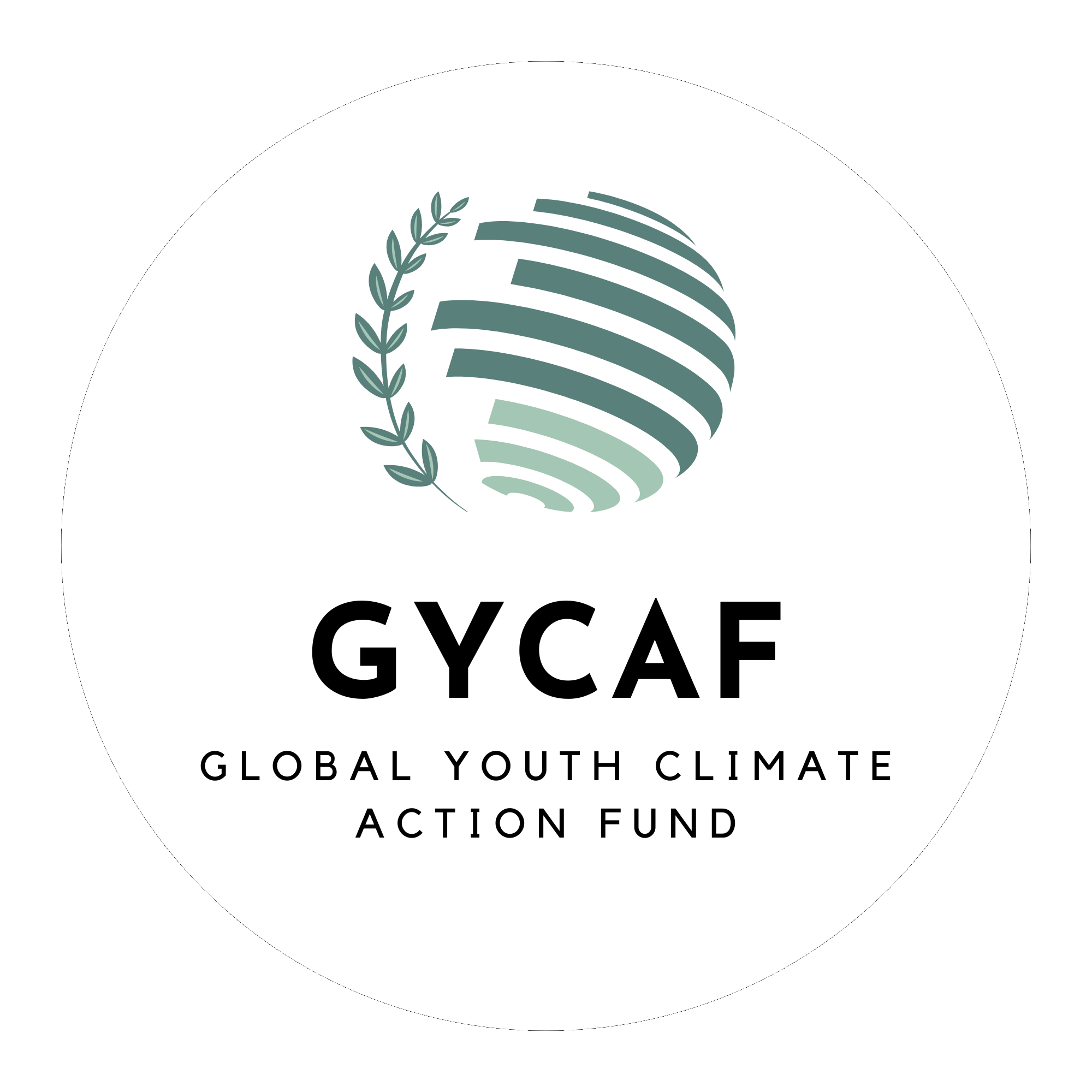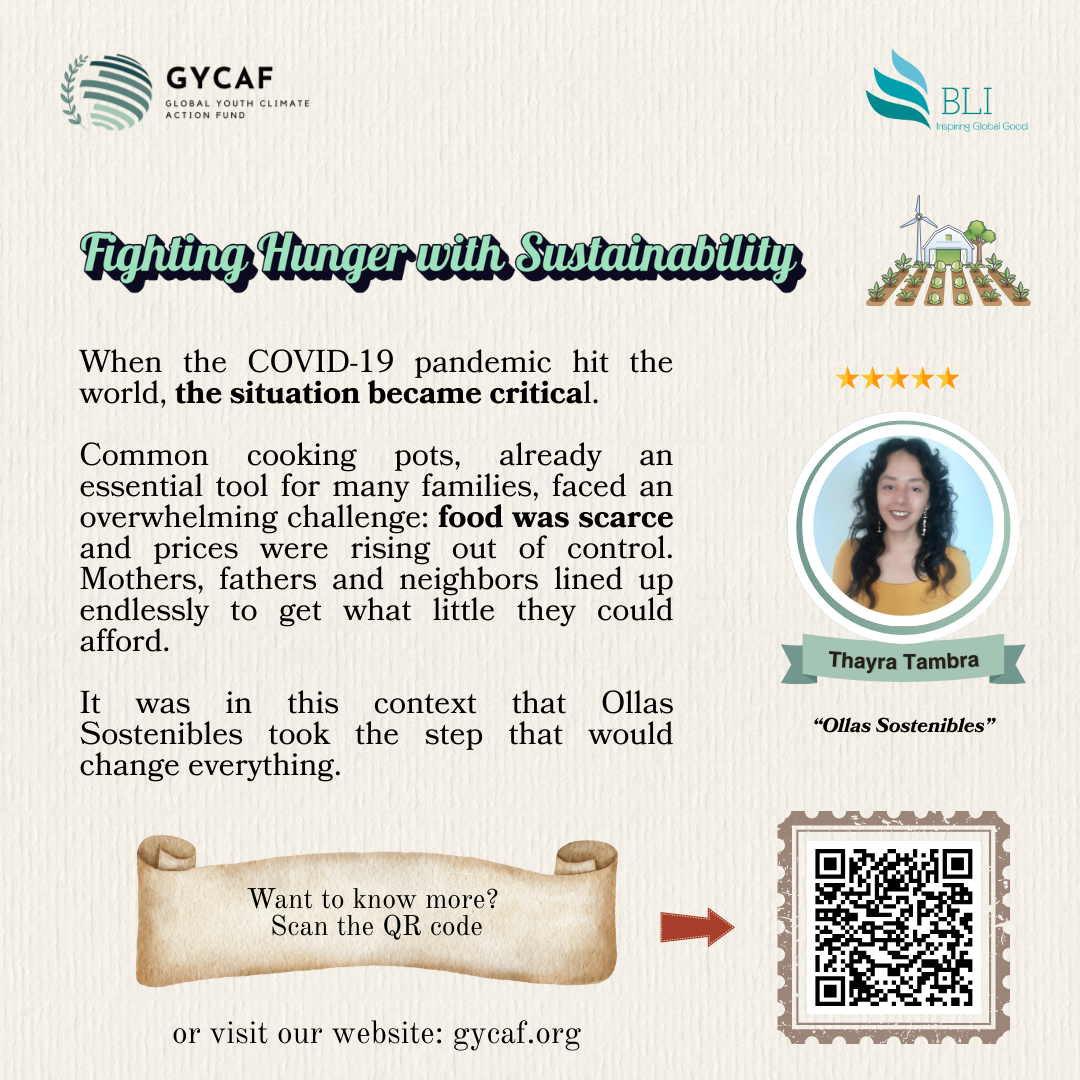In 2020, a young engineer studying sustainabledevelopment and climate change discovered areality he could not ignore; the system ofdonations for the ollas comunes, whichoperates in Peru as emergency food support,was broken. Despite good will, donations didnot reach those who needed them most, andmany communities remained invisible, withoutregistration or resources. In other words, food was delivered, but no tools for survival. It was then that Ollas Sostenibles (OS) was born, anidea driven by indignation and the social commitment. Their goals were clear:
- Transform these community initiatives into self-sufficient solutions, capable of withstanding food and environmental crises.
- No longer dependent on government donations.
With volunteers, allies and a vision for change, a model was created that not only fights hunger, but empowers people. This is not just a project; it is a fight for justice and dignity for all.
😷The Pandemic: The Hardest Hit
When the COVID-19 pandemic hit the world, thesituation in the most vulnerable areas of Lima became critical. Common cooking pots, already an essential tool for many families, faced an overwhelming challenge: food was scarce and prices were rising out of control. Mothers, fathers and neighbors lined up endlessly to get what little they could afford, while food insecurity spread like a shadow in every corner.
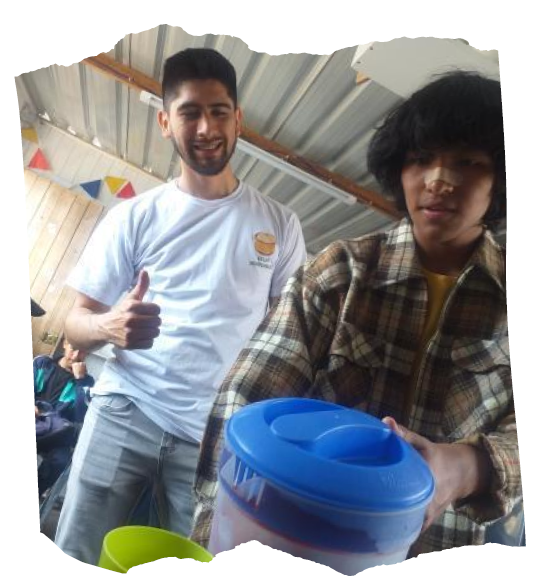
It was in this context that Ollas Sostenibles took the step that would change everything. The project adopted a circular approach, a model that not only fed, but created sustainable systems that benefited communities in the long term. The idea was clear: if the system failed, the solution had to come from within, from the communities themselves.
A Model Based on Sustainability
The heart of Ollas Sostenibles has three fundamental pillars (based on the UN Nexus system)
🥗Food from community gardens: Instead of relying exclusively on donations orpurchases, communities began to grow their own food. This not only guaranteed fresh and nutritious food, but also reduced dependence on traditional markets and the state.
🔄Renewable energies: The implementation of biodigesters and solar dryers allowed the common cooking pots to be energy self-sufficient. This reduced costsand protected the environment at the same time.
Gray water treatment: In a country where water sanitation is questionable,especially in the coastal area, this system allowed reusing water for irrigation,consumption and other activities, maximizing every drop.
 2024: A Year Of Progress And Challenges
2024: A Year Of Progress And Challenges
2024 was a key year for Ollas Sostenibles. Thanks to the tireless efforts of the team and the communities, we were able to implement hydroponic gardens that optimized the use of space and water, as well as solar filters and dryers that improved food preservation and preparation. These innovations transformed common cooking pots into true centers of sustainability.
But the transformation was not only technological. People were the protagonists of this change. During that year, hundreds of neighbors attended educational talks where they learned about food safety, nutritious food and emotional management.
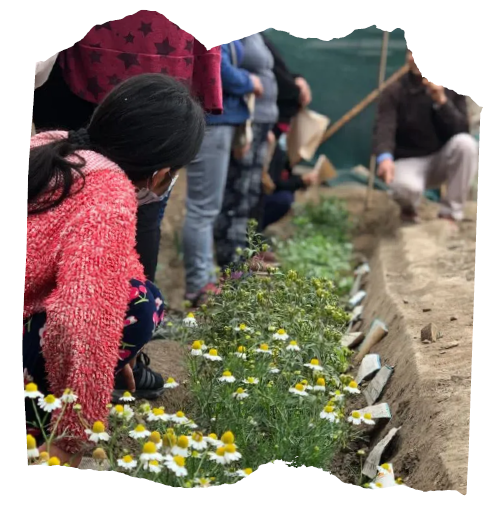
These trainings not only gave them practical tools, but also a new sense of autonomy and confidence. The project also took an important step towards institutionalization by working with the municipality to legalize the common pots. This not only guaranteed them official recognition, but also access to resources and additional support to continue their work.
💪The Challenge At Cañete
However, it was not all smooth sailing. In Cañete, where an ambitious project that included a farm, a biodigester and a traditional vegetable garden had been initiated, things did not go as expected. Although great strides had been made in building a solid foundation, lack of funding stopped the dream before it could fully blossom.
BIOL, an organic fertilizer that was expected to be commercialized, could not reach the market. Nor were the animals needed to complete the farm acquired; the safety of the people in the house-home, especially the children, became a priority that ledto pausing the project in October 2024. It was a hard blow, but also a lesson that reaffirmed the importance of planning and adaptation on the road to lasting change.
🙌The Impact: A Legacy Of Hope
Despite the obstacles, Ollas Sostenibles has left a deep mark on the communities it has touched. Currently, the project has reached two provinces in Peru, transforming the lives of people in 8 districts and renewing the spirit of 10 common cooking pots.
More than 600 people have directly benefited by receiving balanced and nutritious meals. But the impact goes beyond food: these people have also received training that has given them tools to deal with food insecurity, take care of their emotional health and build a better future for their families.
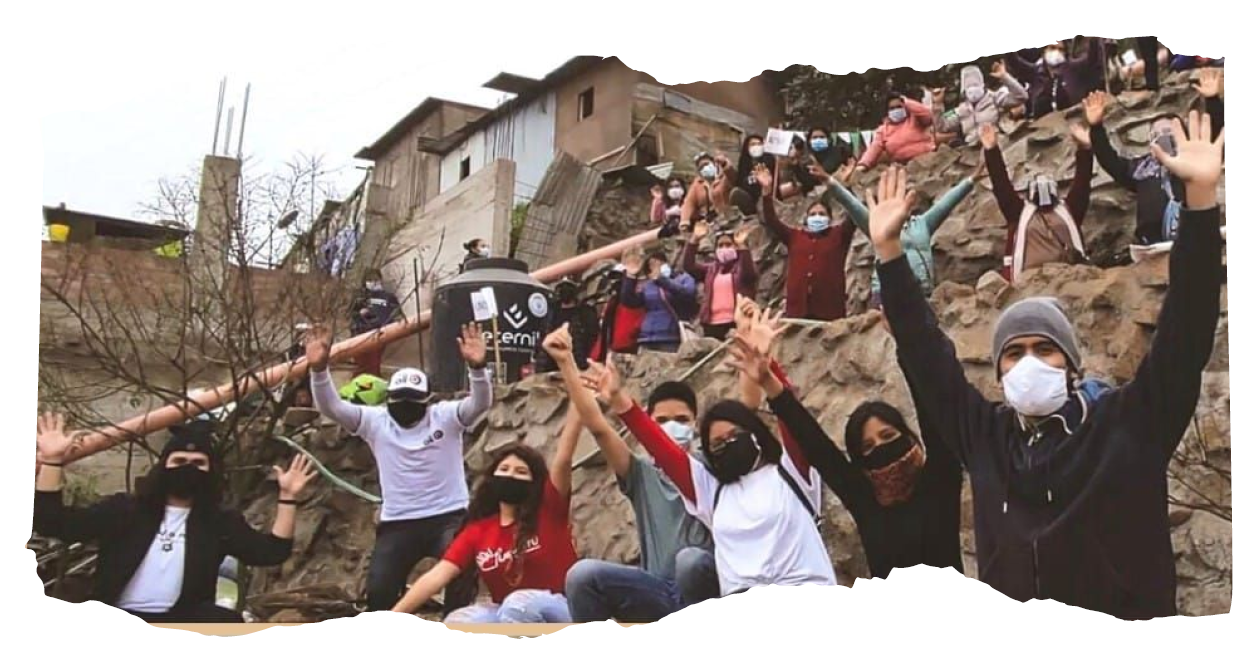
The real achievement of Ollas Sostenibles is not just in the numbers, but in the life stories behind it. It's the mother who learned to grow her own food in a small garden at home. It's the child who now eats fresh fruits and vegetables every day. It is the community that went from relying on charity to being an example of autonomy and solidarity.
🤝The Future Is In Our Hands
Ollas Sostenibles history is far from over. Every day, the team and the communities work to bring this sustainable revolution to more corners of the country. They dream of a Peru where no pot is left empty and where each community has the tools to face challenges with creativity, autonomy and resilience.
Ollas Sostenibles invites you to join; to believe in the power of solidarity and innovation. Because when communities organize themselves, when dreams become actions and when actions multiply, change is inevitable.
